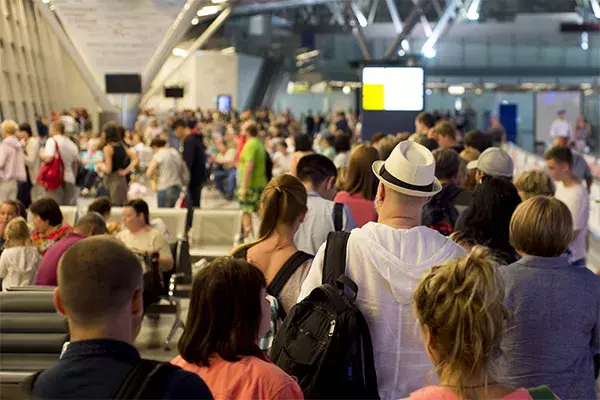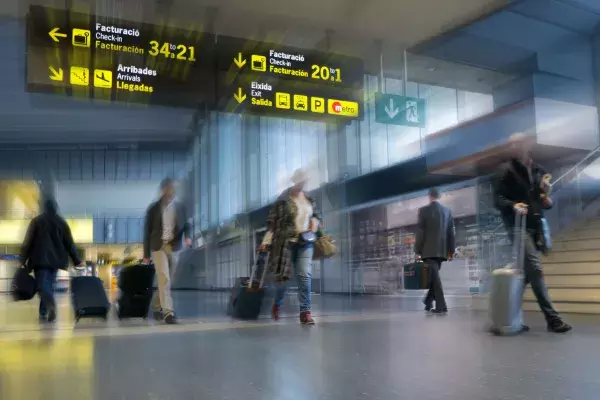18 June 2019 | News
IATA Resolution 830d update: Travel agents must now ask for passenger details
18 June 2019 | News
IATA Resolution 830d update: Travel agents must now ask for passenger details
How has IATA Resolution 830d been updated?
An update to IATA Resolution 830d came into effect on 1st June 2019 requiring travel agents (except in the US*) and travel advisors to pro-actively ask customers if they wish to provide their contact information to airlines participating in the itinerary at the point of booking. This is to enable the airline to contact the passenger in the event of an operational disruption. Where the passenger wishes to have their contact details provided (mobile number and/or email), the agent is required to enter it into the PNR.
Should a passenger decline to share their contact details, it is the travel agent’s responsibility to:
- Indicate within the PNR that this is the case in order to limit statutory liability.
- Advise the passenger that by failing to provide contact information, they may not receive information from their airline about flight cancellations, delays or schedule changes.
As with the original terms of IATA Resolution 830d, passenger details can only be used by airlines for operational notifications; not for sales or marketing communications.
How does this differ from the original 830d?
IATA Resolution 830d was initially introduced in January 2015. However, the aviation body launched it only as a recommendation to agents; not the mandate it has become.
Additionally, there was previously no requirement for travel agents to register the ‘non-consent’ of travellers who did not wish to share their mobile number or email address.

What do the experts say?
Al Tredinnick, Head of Business Development at 15below, says:
“Contact details are a critical issue in the industry, particularly at a time of increasing regulatory focus on passenger rights. Airlines work very hard to avoid flight disruptions and cancellations, but sometimes they are unavoidable. Having the ability to alert the passenger of the disruption and offer travel alternatives will go a long way toward easing passenger frustrations when these incidents occur. There are many exciting initiatives happening in the industry at the moment where direct contact with the customer will be essential.
“We work with our customers to search through and correct contact details in the PNR but often need to look through loyalty programmes and CRM systems to find details. Ultimately the passenger should own their own experience when travelling and getting stranded somewhere because someone doesn’t share their contact details is unacceptable. Hopefully, by helping airlines audit contactability they can negotiate a reasonable solution with travel companies.”
Henry Coles, Head, Airline Distribution Standards at IATA, says:
“The new strengthened language in IATA Resolution 830d reflects the shared objective of travel agents and airlines to keep passengers informed and give them access to accurate and timely information when things don’t go to plan.
“It’s very important that airlines are ready to receive and use this information to help passengers through disruptions, and that as an industry we improve the interaction with customers in these circumstances.”
Why was IATA Resolution 830d introduced?
In 2014, IATA announced the introduction of Resolution 830d to tackle the growing problem of airlines being unable to inform passengers of delays, schedule changes and cancellations due to inconsistent or incomplete contact details.
The regulation increases the quantity and accuracy of the information available to airlines when cases of disruption occur and they need to contact passengers, often at short notice.
How will the update benefit airlines and passengers?
Airlines will be able to capture more contact details, allowing them to communicate with passengers whose schedule has been disrupted.
The best carriers will reach their customers with personalised, real-time messages that provide the information people need, the options available to them and if required, the ability to re-book or request a refund through self-serve solutions.
This will minimise the operational impact on call centres and ground staff while reducing frustration for all involved. It will also boost customer loyalty and brand protection.
Customers who share contact details – whether they book directly with an airline or via a travel agent – will benefit from being informed if their flight is disrupted. Being empowered in this way should help passengers to enjoy a calmer, stress-free experience even when things go wrong.
* Airlines in the US manage their own agency programme under the Airline Reporting Corporation with private regulations, meaning US-based travel agents are not bound by IATA rules.




